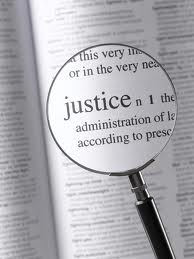It is obvious that it is difficult to define insurable interest in words which will apply in all situations. The matter is further obscured by a difference of opinion or, at the least, emphasis, between the cargo practitioners. On one side there are those who take the view that there has to be some, “legal or equitable interest between the assured and the subject-matter insured, expectation of harm or benefit, not being enough”.
“It is not a requirement of property insurance that the assured must have a ‘legal or equitable’ interest in the property as those terms might normally be understood … It is sufficient under Section 5 of the Marine Insurance Act for a person interested in a marine adventure to stand in a ‘legal or equitable relation to the adventure’. That is intended to be a broad concept.”
This brings us to the full terms of the Marine Insurance Act 1906 section 5(2) which provide as follows:
“… a person is interested in a marine adventure where he stands in any legal or equitable relation to the adventure or to any insurable property at risk therein, in consequence of which he may benefit by the safety or due arrival of insurable property, or may be prejudiced by its loss, or by damage thereto, or by the detention thereof, or may incur liability in respect thereof.”
This section of the Act was drafted in the specific context of the SG Form of policy that insured ship and goods for a voyage or adventure and remains particularly apt in the context of marine cargo insurance. In particular, it recognizes two different kinds of subject-matter insured which may be the subject of an insurable interest for it refers to both “the adventure” and “any insurable property at risk”. We consider the “insurable property at risk”, in this respect it is clearly sufficient for the assured to show either property or risk in the subject-matter at the date of the loss.
More difficult issues arise where the assured has neither property nor risk at the time of the loss and it is necessary to determine whether the assured stood in such a relationship to the property insured that he would, in terms of section 5(2), benefit from the safety of the property or be prejudiced by its loss.
a) Ownership or possession (or the right to possession) of the property insured is not a necessary requirement of an insurable interest therein;
b) Commercial convenience can be a relevant factor in determining the existence of an insurable interest;
c) A person exposed to liability in respect of the custody or care of property may, as an alternative to taking out liability insurance to protect his exposure, insure the property itself, and in the event of loss or damage thereto by a peril insured against may recover in respect thereof up to the full sum insured, even if that exceeds the amount for which he is liable and even if the loss or damage has occurred without any actionable fault on his part. If and to the extent that he has suffered no personal loss he will liable to account to the owner of the goods who has suffered the loss.
d) A legal right to the use of goods, the benefit of which would be lost by their damage or destruction, may be sufficient to constitute an insurable interest therein;
e) A person may also have an insurable interest in property if loss of or damage to that property would deprive him of the opportunity of carrying out work in relation to that property and being remunerated for such work …”





